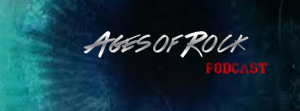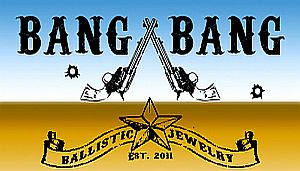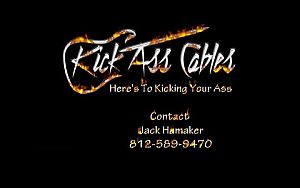This It How It Feels to Be Under a Nuclear Attack…
interesting read, hopefully this will never happen again (chuck)
This It How It Feels to Be Under a Nuclear Attack
We’re used to see atomic bombs images. From afar, they even look beautiful. But when one explodes near you, that immaculate light will burn your skin and make you bleed spontaneously. 65 years ago today, this is how that felt.
On August 6, 1945, the B-29 bomber Enola Gay took off from the North Field airbase on Tinian, in the West Pacific. At 8:15, 509th Composite Group commander Colonel Paul Tibbets arrived to the destination: Hiroshima. 30 minutes before that, 2nd Lieutenant Morri Jeppson had removed all safety devices from “Little Boy”, an atomic bomb loaded with 130 pounds of uranium-235—the first to be exploded over any population in the planet. 32,333 feet below, this is what that population experienced.
300 feet from Little Boy’s explosion hypocenter.
Hiroshima, Japan
Akiko Takakura.
Age at impact: 20 years.
One of the very few who survived so near the hypocenter.
TAKAKURA: After the air-raid the alarm was called off, I walked from Hatchobori to the Bank of Hiroshima in Kamiya-cho. I arrived at the bank some time around 8:15 or so, and signed my name in the attendance book. When I was doing my morning routine, dusting the desks and things like that, the A-bomb was dropped. All I remember was that I saw something flash suddenly.
INTERVIEWER: Can you explain the flash?
TAKAKURA: Well, it was like a white magnesium flash. I lost consciousness right after or almost at the same time I saw the flash. When I regained consciousness, I found myself in the dark. I heard my friends, Ms. Asami, crying for her mother. Soon after, I found out that we actually had been attacked. Afraid of being caught by a fire, I told Ms. Asami to run out of the building. Ms. Asami, however, just told me to leave her and to try to escape by myself because she thought that she couldn’t make it anywhere. She said she couldn’t move. I said to her that I couldn’t leave her, but she said that she couldn’t even stand up. While we were talking, the sky started to grow lighter.
Then, I heard water running in the lavatory. Apparently the water pipes had exploded. So I drew water with my helmet to pour over Ms. Asami’s head again and again. She finally regained consciousness fully and went out of the building with me. We first thought to escape to the parade grounds, but we couldn’t because there was a huge sheet of fire in front of us. So instead, we squatted down in the street next to a big water pool for fighting fires, which was about the size of this table.
Since Hiroshima was completely enveloped in flames, we felt terribly hot and could not breathe well at all. After a while, a whirlpool of fire approached us from the south. It was like a big tornado of fire spreading over the full width of the street. Whenever the fire touched, wherever the fire touched, it burned. It burned my ear and leg, I didn’t realize that I had burned myself at that moment, but I noticed it later.
INTERVIEWER: So the fire came towards you?
TAKAKURA: Yes, it did. The whirlpool of fire that was covering the entire street approached us from Ote-machi. So, everyone just tried so hard to keep away from the fire. It was just like a living hell. After a while, it began to rain. The fire and the smoke made us so thirsty and there was nothing to drink, no water, and the smoke even disturbed our eyes. As it began to rain, people opened their mouths and turned their faces towards the sky and try to drink the rain, but it wasn’t easy to catch the rain drops in our mouths. It was a black rain with big drops.
INTERVIEWER: How big were the rain drops?
TAKAKURA: They were so big that we even felt pain when they dropped onto us. We opened our mouths just like this, as wide as possible in an effort to quench our thirst. Everybody did the same thing. But it just wasn’t enough. Someone, someone found an empty can and held it to catch the rain.
INTERVIEWER: I see. Did the black rain actually quench your thirst?
TAKAKURA: No, no it didn’t. Maybe I didn’t catch enough rain, but I still felt very thirsty and there was nothing I could do about it. What I felt at that moment was that Hiroshima was entirely covered with only three colors. I remember red, black and brown, but, but, nothing else. Many people on the street were killed almost instantly. The fingertips of those dead bodies caught fire and the fire gradually spread over their entire bodies from their fingers.
A light gray liquid dripped down their hands, scorching their fingers. I, I was so shocked to know that fingers and bodies could be burned and deformed like that. I just couldn’t believe it. It was horrible. And looking at it, it was more than painful for me to think how the fingers were burned, hands and fingers that would hold babies or turn pages, they just, they just burned away.
0.31 miles from hypocenter
Taeko Teramae.
Age at impact: 15 years old.
TERAMAE: When the bomb fell, I was 15 years old. I was a third grader at the girls’ junior high school. I saw something shining in the clear blue sky. I wondered what it was, so I stared at it. As the light grew bigger, the shining thing got bigger as well.
And at the moment when I spoke to my friend, there was a flash, far brighter than one used for a camera. It exploded right in front of my eyes. There was a tremendous noise when all the buildings around me collapsed. I also heard people crying for help and for their mothers. I was caught under something which prevented me from moving freely.
I was so shocked that I couldn’t believe what had happened. I thought maybe I was having some kind of nightmare, but of course, I wasn’t. I felt pain when I pinched myself to see if it was real. I thought the bomb had been dropped on the central telephone office. The dust was rising and something sandy and slimy entered my mouth. I couldn’t figure out what it was since I couldn’t move or see. I couldn’t see anything in the dark.
A little later, I smelt something like sulfur. It smelt like the volcano, Mt. Aso and I threw up. I heard more voices calling “Mother! Mother!” But when our class teacher, Mr.Wakita, told us to behave like good students and stop crying, all the cries for help and for Mother stopped all of a sudden.
0.62 miles from hypocenter
Hiroko Fukada.
Age at impact: 18 years old.
INTERVIEWER: What was the color of the light?
FUKADA: I remember it was yellow. I clearly remember it now and despite the shower of glass, fortunately I didn’t have any major injuries. I thought it was hopeless because I thought the buildings directly head and I went out of the building because I thought it would be dangerous to stay inside. Soon I found soldiers walking in this direction. I was with my friends and we thought it would be safe to go with soldiers, and so we came here.
INTERVIEWER: What were the conditions outside the building?
FUKADA: Everybody was terribly injured. We were even embarrassed because we were not injured. I have no words to describe the scene. A flood of people went down this cliff just like dominoes down.
Mamoru Yukihiro.
Age at impact: 36 years old.
INTERVIEWER: Uh….how was it when you saw the ray?
YUKIHIRO: Immediately after I saw the strange yellow ray, the office was totally destroyed almost instantly, without any warning. It was as if a box of matches has suddenly been struck by a hammer and crushed to pieces. I didn’t even hear any sound. I sat still for a while, and then, I saw the sun ray come in above me. So I managed to get up, but I couldn’t find any of the 200 employees. Even though I myself had 3 wounds on my head and one on my back, I was so surprised that I walked out, I walked out onto the street with the blood running down my body. In the street, all I found were wounded people and destroyed houses.
0.74 miles from hypocenter
Akira Onogi.
Age at impact: 16 years old.
ONOGI: I was in the second year of junior high school and was mobilized work with my classmates at the Eba Plant, Mitsubishi shipbuilding. On the day when A-bomb was dropped, I happened to be taking the day off and I was staying at home. I was reading lying on the floor with a friend of mine. Under the eaves I saw blue flash of light just like a spark made by a train or some short circuit. Next, a steamlike blast came.
INTERVIEWER: From which direction?
ONOGI: Well, I’m not sure, anyway, when the blast came, my friend and I were blown into another room. I was unconscious for a while, and when I came to, I found myself in the dark. Thinking my house was directly hit by a bomb, I removed red soil and roof tiles covering me by hand and for the first time I saw the sky. I managed to go out to open space and I looked around wondering what my family were doing. I found that all the houses around there had collapsed for as far as I could see.
INTERVIEWER: All the houses?
ONOGI: Yes, well, I couldn’t see anyone around me but I heard somebody shouting “Help! Help!” from somewhere. The cries were actually from underground as I was walking on. Since no choose were available, I’d just dug out red soil and roof tiles by hand to help my family; my mother, my three sisters and a child of one of my sisters.
Then, I looked next door and I saw the father of neighboring family standing almost naked. His skin was peeling off all over his body and was hanging from finger tips. I talked to him but he was too exhausted to give me a reply. He was looking for his family desperately. The person in this picture was a neighbor of us. I think the family’s name was the Matsumotos.
When we were escaping from the edge of the bridge, we found this small girl crying and she asked us to help her mother. Just beside the girl, her mother was trapped by a fallen beam on top of the lower half of her body. Together with neighbors, we tried hard to remove the beam, but it was impossible without any tools.
Finally a fire broke out endangering us. So we had no choice but to leave her. She was conscious and we deeply bowed to her with clasped hands to apologize to her and then we left. About one hour later, it started raining heavily. There were large drops of black rain. I was wearing a short sleeve shirt and shorts and it was freezing. Everybody was shivering. We warmed ourselves up around the burning fire in the middle of the summer.
INTERVIEWER: You mean the fire did not extinguish by the rain?
ONOGI: That’s right. The fire didn’t subside it at all. What impressed my very strongly was a 5 or 6 year-old-boy with his right leg cut at the thigh. He was hopping on his left foot to cross over the bridge. I can still record this scene very clearly. The water of the river we looking at now is very clean and clear, but on the day of bombing, all the houses along this river were blown by the blast with their pillars, beams and pieces of furniture blown into the river or hanging off the bridges.
The river was also filled with dead people blown by the blast and with survivors who came here to seek water. Anyway I could not see the surface of the water at all. Many injured people with peeled skin were crying out for help. Obviously they were looking at us and we could hardly turn our eyes toward the river.
INTERVIEWER: Wasn’t it possible to help them?
ONOGI: No, there were too many people. We took care of the people around us by using the clothes of dead people as bandages, especially for those who were terribly wounded. By that time we somehow became insensible all those awful things. After a while, the fire reached the river bank and we decided to leave the river. We crossed over this railway bridge and escaped in the direction along the railway.
The houses on both sides of the railroad were burning and railway was the hollow in the fire. I thought I was going to die here. It was such an awful experience. You know for about 10 years after bombing I always felt paralyzed we never saw the sparks made by trains or lightning. Also even at home, I could not sit beside the windows because I had seen so many people badly wounded by pieces of glass. So I always sat with the wall behind me for about 10 years. It was some sort of instinct to self-preservation.
0.87 miles from hypocenter
Akihiro Takahashi.
Age at impact: 14 years old.
TAKAHASHI: We were about to fall in on the ground the Hiroshima Municipal Junior High School on this spot. The position of the school building was not so different from what it is today and the platform was not positioned, too. We were about to form lines facing the front, we saw a B-29 approaching and about fly over us. All of us were looking up the sky, pointing out the aircraft.
Then the teachers came out from the school building and the class leaders gave the command to fall in. Our faces were all shifted from the direction of the sky to that of the platform. That was the moment when the blast came. And then the tremendous noise came and we were left in the dark. I couldn’t see anything at the moment of explosion just like in this picture.
We had been blown by the blast. Of course, I couldn’t realize this until the darkness disappeared. I was actually blown about 10 m. My friends were all marked down on the ground by the blast just like this. Everything collapsed for as far as I could see. I felt the city of Hiroshima had disappeared all of a sudden. Then I looked at myself and found my clothes had turned into rags due to the heat. I was probably burned at the back of the head, on my back, on both arms and both legs.
My skin was peeling and hanging like this. Automatically I began to walk heading west because that was the direction of my home. After a while, I noticed somebody calling my name. I looked around and found a friend of mine who lived in my town and was studying at the same school. His name was Yamamoto. He was badly burnt just like myself.
2.3 miles from hypocenter
Isao Kita.
Age at impact: 33 years old
KITA: Well, at that time, I happened to be receiving the transmission over the wireless. I was in the receiving room and I was facing northward. I noticed the flashing light. It was not really a big flash. But still it drew my attention. In a few seconds, the heat wave arrived.
After I noticed the flash, white clouds spread over the blue sky. It was amazing. It was as if blue morning-glories had suddenly bloomed up in the sky. It was funny, I thought. Then came the heat wave. It was very very hot. Even though there was a window glass in front of me, I felt really hot. It was as if I was looking directly into a kitchen oven. I couldn’t bear the heat for a long time. Then I heard the cracking sound. I don’t know what made that sound, but probably it came from the air which suddenly expanded in the room.
By that time, I realized that the bomb had been dropped. As I had been instructed, I pushed aside the chair and lay with my face on the floor. Also as I had been instructed during the frequent emergency exercises, I covered my eyes and ears with hands like this.
And I started to count. You may feel that I was rather heartless just to start counting. But for us, who observed the weather, it is a duty to record the process of time, of various phenomena. So I started counting with the light flash. When I counted to 5 seconds, I heard the groaning sound. At the same time, the window glass was blown off and the building shook from the bomb blast. So the blast reached that place about 5 seconds after the explosion.
We later measured the distance between the hypocenter and our place. And with these two figures, we calculated that the speed of the blast was about 700 meters per second. The speed of sound is about 330 meters per second, which means that the speed of the blast was about twice as fast as the speed of sound. It didn’t move as fast as the speed of light but it moved quite rapidly.
2.54 miles from hypocenter
Hiroshi Sawachika.
Age at impact: 28 years old
SAWACHIKA: I was in my office. I had just entered the room and said “Good morning.” to colleagues and I was about to approach my desk when outside it suddenly turned bright red. I felt very hot on my cheeks. Being the chief of the room, I shouted to the young men and women in the room that they should evacuate. As soon as I cried, I felt weightless as if I were an astronaut.
I was then unconscious for 20 or 30 seconds. When I came to, I realized that everybody including myself was lying at one side of the room. Nobody was standing. The desks and chairs had also blown off to one side. At the windows, there was no window glass and the window frames had been blown out as well. I went to the windows to find out where the bombing had taken place.
And I saw the mushroom cloud over the gas company.
The sound and shock somehow suggested that the bomb had been dropped right over the gas company. I still had no idea what had happened. And I kept looking towards the gas company. After a while, I realized that my white shirt was red all over. I thought it was funny because I was not injured at all. I looked around and then realized that the girl lying near by was heavily injured, with lots of broken glass stuck all over her body. Her blood had splashed and made stains on my shirt.
These testimonies are part of “Voice of Hibakusha”, from the Hiroshima Witness program, produced by the Hiroshima Peace Cultural Center and NHK. The transcripts were distributed on Usenet in 1990.
for photos
http://gizmodo.com/5606053/this-it-how-it-feels-to-be-under-a-nuclear-attack










